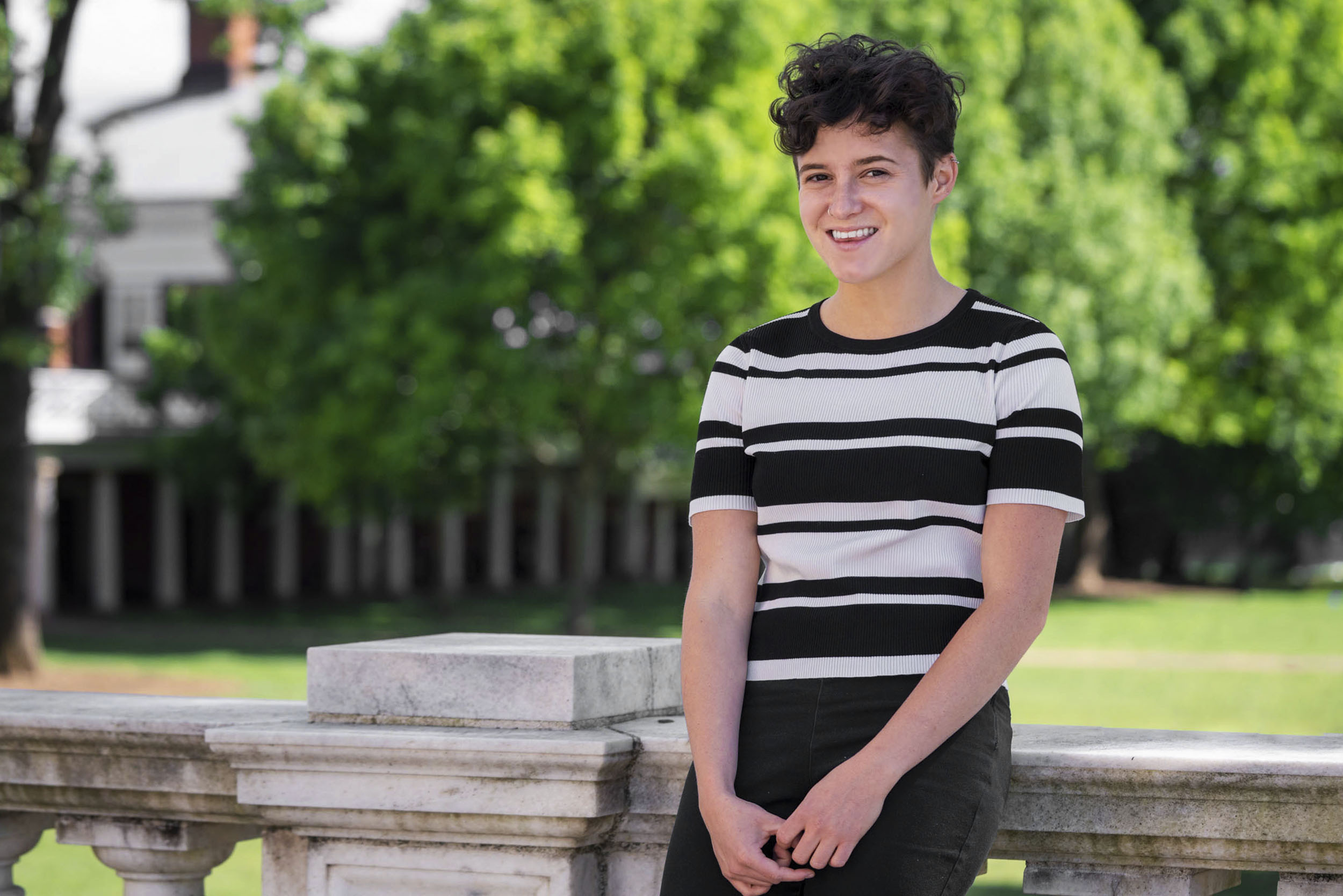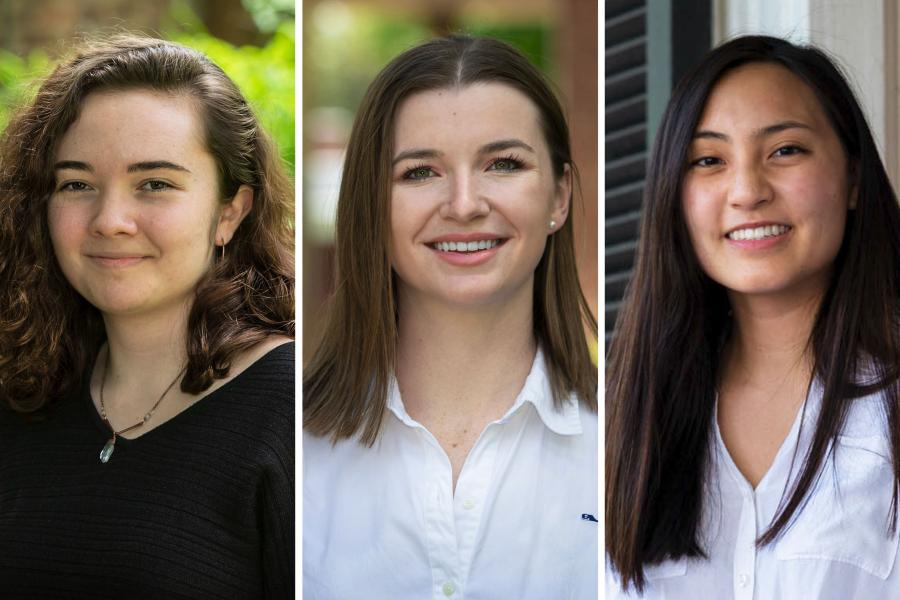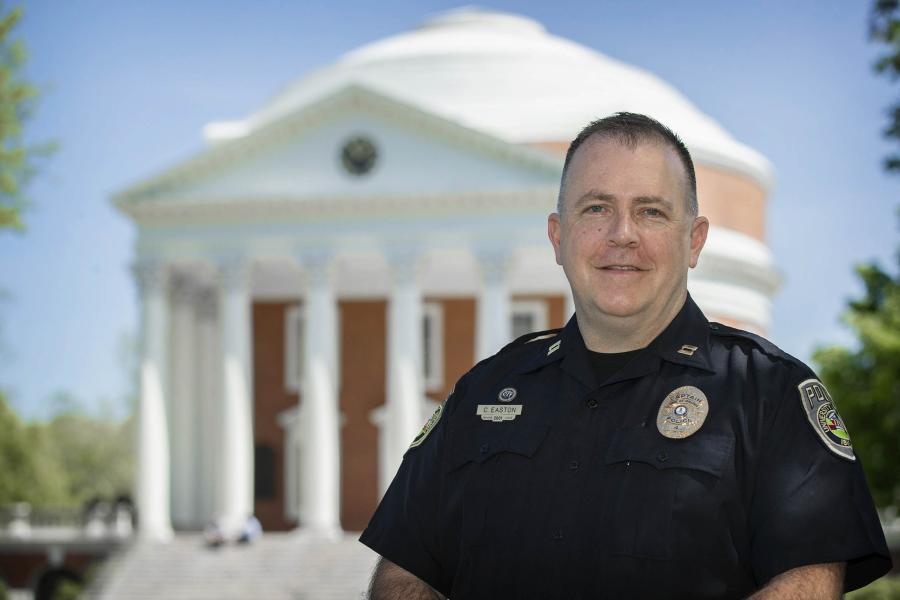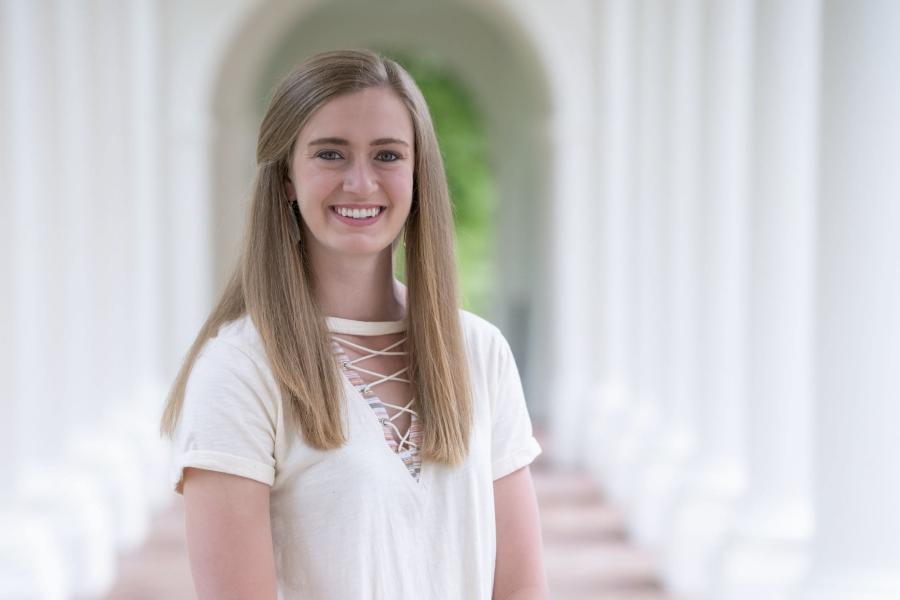Zoe Larmey’s globetrotting path to the University of Virginia began in Dar es Salaam, Tanzania, where she grew up as her parents led Young Life’s efforts there. After being accepted to UVA in 2016, she delayed her arrival for a gap year spent working as an au pair in France to improve her French, and then as a housekeeper and volunteer translator for a Mercy Ships hospital vessel offering medical care off the coast of Benin for some of Africa’s poorest populations.
The ripple effects from those experiences prodded the graduating UVA student to continue seeking international connections and opportunities for service over the course of her four years in Charlottesville. Larmey volunteered with the local International Rescue Committee, using her French and Swahili language skills to help refugee clients from the Democratic Republic of Congo and other countries settle in the area. Through a summer fellowship with the Religion, Race and Democracy Lab, a research project associated with UVA’s Democracy Initiative, she also reported and produced a podcast episode on the Ebola crisis in Liberia.
Now, after completing a double major in political and social thought and in studio art, with a focus in cinematography, Larmey plans to return to Tanzania before mapping out her next big step.
“I haven’t been back since I started college, and I have the privilege to embrace a bit of uncertainty right now and give back,” Larmey said. “I want to see how much I’ve changed when I get back within the context that I used to be in before deciding where I want to continue.”
That open-ended curiosity and enthusiasm for exploring the unfamiliar, along with the perspective she brought from growing up outside the United States, distinguished Larmey both in the classroom and outside the confines of the University community.
Professor Michael Joseph Smith, director of the Political and Social Thought program in UVA’s College and Graduate School of Arts & Sciences, said he first met Larmey several years ago before she started the major, as she was preparing for a spring break trip to Cuba.












